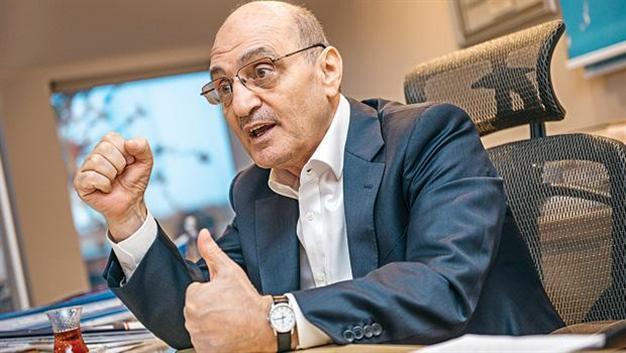Former environment minister eyes new construction projects, criticizes urban transformation practices
Gülistan Alagöz - ISTANBUL

Former Minister of Environment and Urban Affairs Erdoğan Bayraktar, who resigned during a massive corruption probe in 2013, has returned to running his construction company, while eyeing new projects and criticizing urban transformation practices.
“I recovered from the trauma. There are a couple of construction projects that I have been following now,” he said.
He believes he was treated quite unfairly at the time of his resignation, but he is doing well now.
Bayraktar, who quit his ministerial position two years ago, now runs Bayraktar İnşaat, which was founded in the 1970s.
He said urban transformation is key for Turkey as there are around 6.5 million risky buildings located on earthquake sites.
Under the leadership of the Environment and Urban Affairs Ministry, a total of seven million houses would be rebuilt in a 15-year timespan. According to the original plan, private companies would lead the process in coordination with municipalities. As a majority of Turkey’s provinces have not completed their master plans in the framework of urban transformation, the country has taken few steps on the road to the reconstruction of these houses. A very small number of houses have been reconstructed so far, according to experts.
Noting the existence of loopholes in the urban transformation regulation, he said, “The process needs to be turned into something for the sake of citizens…Let me give you an example. Let’s assume that some 100 square meter-areas are risky over a 10-acre land. It is not fair to benefit from the tax exemption offered by the law there. The point needs to create value for citizens, not contractors. The Finance Ministry should collect tax from this land as the money spent there is returned back to the public as a service. I prepared a circular about this issue during my ministerial term, but this was removed later,” he said.
Bayraktar has been complaining about the existence of opportunist contractors who ask for the ownership of more apartments than they deserve after they renew apartments.
“The state needs to detect which buildings are risky, then give three or six months to the owners to move somewhere else. The state should then cut the electricity and demolish the building. Then, it will speed up the process without harming the citizens. If people saw how determined the state is to run the process, they would have already renewed their houses,” he said.
Bayraktar said the biggest problem is the existence of a bureaucratic, oligarchic structure.
“When offering construction licenses, the state needs to have strict controls…The state should ease the licensing process by clearing red tape practices, but needs to control whether the project is being made in line with the license or whether the work creates environmental damage…We had eased the challenges for the private sector in the doors of the state, but things have returned to the same again. If these [issues are] improve, the urban transformation process will accelerate. This will trigger Turkey’s development,” he added.
 Former Minister of Environment and Urban Affairs Erdoğan Bayraktar, who resigned during a massive corruption probe in 2013, has returned to running his construction company, while eyeing new projects and criticizing urban transformation practices.
Former Minister of Environment and Urban Affairs Erdoğan Bayraktar, who resigned during a massive corruption probe in 2013, has returned to running his construction company, while eyeing new projects and criticizing urban transformation practices.